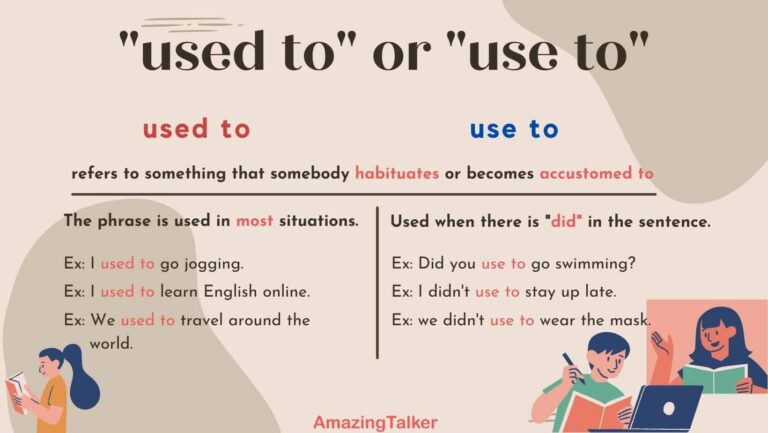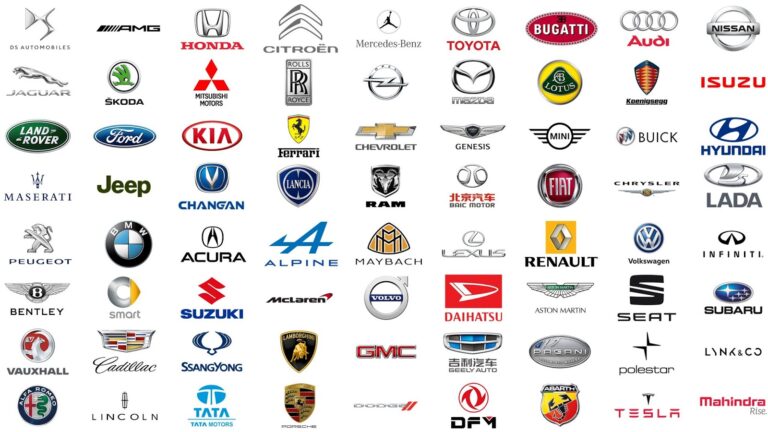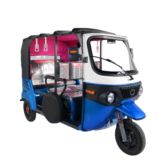Best Brand Name Car Tires: A Comprehensive Guide to Choosing Your Ideal Rubber
Best Brand Name Car Tires: A Comprehensive Guide to Choosing Your Ideal Rubber cars.truckstrend.com
The tires on your car are arguably the most critical component for your safety, performance, and overall driving experience. They are the sole point of contact between your vehicle and the road, influencing everything from braking distance and handling to fuel efficiency and ride comfort. When it comes to something so fundamental, compromising on quality is never a wise decision. This is where the concept of "Best Brand Name Car Tires" comes into play. It’s not just about finding the most expensive or popular brand, but rather identifying the manufacturers renowned for their consistent quality, innovation, reliability, and the ability to meet diverse driving needs. Understanding these top-tier brands and what they offer is key to making an informed decision that enhances your vehicle’s capabilities and ensures peace of mind on every journey.
Understanding Tire Categories and Your Needs
Best Brand Name Car Tires: A Comprehensive Guide to Choosing Your Ideal Rubber
Before diving into specific brands, it’s crucial to understand that the "best" tire is highly subjective and depends entirely on your specific vehicle, driving habits, local climate, and performance expectations. Tires are broadly categorized by their intended use and season:
- All-Season Tires: The most common type, designed for year-round performance in moderate climates. They offer a balance of dry, wet, and light snow traction, making them versatile for daily commuting.
- Performance (Summer) Tires: Engineered for optimal grip and handling in warm, dry, and wet conditions. They feature specialized tread compounds and patterns for enhanced steering response and braking, often at the expense of cold-weather performance.
- Winter (Snow) Tires: Specifically designed for cold temperatures, snow, and ice. They use softer rubber compounds that remain flexible in freezing conditions and aggressive tread patterns with sipes for superior traction on slippery surfaces.
- Touring Tires: Similar to all-season tires but prioritize ride comfort, low noise, and long tread life. They are excellent for sedans and minivans, offering a smooth, quiet ride.
- All-Terrain (A/T) & Mud-Terrain (M/T) Tires: Primarily for SUVs and trucks, these tires are built for off-road adventures, offering robust construction and aggressive tread for grip on dirt, gravel, mud, and rocks.
- Run-Flat Tires: Designed to maintain pressure for a limited distance after a puncture, allowing you to reach a service station safely without immediately changing a flat.

Your driving style (aggressive vs. leisurely), the typical weather in your region (heavy snow vs. constant sunshine), and your vehicle type (sports car vs. family SUV) will dictate which category of tire is best suited for you.
Key Factors to Consider When Choosing Tires
Beyond the category, several technical specifications and features contribute to a tire’s overall performance and suitability:
- Treadwear Rating: An indicator of a tire’s expected longevity, relative to a control tire. A higher number (e.g., 600) suggests a longer lifespan than a lower one (e.g., 200).
- Traction Rating (AA, A, B, C): Measures a tire’s ability to stop on wet pavement. AA is the highest rating, indicating superior wet braking performance.
- Temperature Rating (A, B, C): Reflects a tire’s resistance to heat buildup, which can affect its durability and safety. A is the highest rating, meaning it dissipates heat most effectively.
- Load Index: A numerical code that specifies the maximum load capacity a tire can support. It must match or exceed your vehicle’s requirements.
- Speed Rating: An alphabetical code indicating the maximum speed a tire can safely maintain. It must also match or exceed your vehicle’s capabilities.
- Noise Levels and Ride Comfort: While subjective, reviews and tire designs (e.g., specific tread patterns, noise-reducing technologies) can indicate how quiet and comfortable a tire will be.
- Fuel Efficiency: Tires with lower rolling resistance can contribute to better fuel economy.
- Warranty: Many reputable brands offer treadwear warranties, often ranging from 40,000 to 80,000 miles, providing peace of mind.
Top Contenders: Best Brand Name Car Tires
When it comes to brand recognition, innovation, and consistent quality, a few names consistently rise to the top. These brands have invested heavily in research, development, and manufacturing excellence to produce tires that meet diverse needs and exceed performance expectations.
-
Michelin: A French powerhouse, Michelin is widely regarded as a premium tire brand, synonymous with innovation, performance, and longevity. They excel in all categories, from high-performance sports car tires (Pilot Sport series) to comfortable touring tires (Premier A/S) and durable truck tires. Michelin often introduces cutting-edge technologies that improve fuel efficiency, wet grip, and tread life. While typically at the higher end of the price spectrum, their quality and performance often justify the investment.
- Strengths: Superior performance, long tread life, fuel efficiency, cutting-edge technology.
- Ideal For: Drivers seeking top-tier performance, safety, and durability, willing to invest in premium quality.
-
Goodyear: An American icon, Goodyear offers one of the most comprehensive lineups of tires on the market. From their robust Wrangler series for trucks and SUVs to their versatile Assurance line for passenger cars and high-performance Eagle tires, Goodyear provides reliable options for nearly every vehicle and driving condition. They are known for their strong all-season capabilities and consistent quality.
- Strengths: Wide range of products, strong all-season performance, good value for money, reliable.
- Ideal For: Everyday drivers, SUV/truck owners, those seeking a balance of performance and affordability.
-
Bridgestone: A Japanese multinational, Bridgestone is the world’s largest tire manufacturer and a significant OEM supplier for many car brands. They are renowned for their technological prowess, offering excellent performance across various segments, including their Potenza line for sports cars, Turanza for touring comfort, and Dueler for SUVs and light trucks. Bridgestone tires are often praised for their durability and consistent handling.
- Strengths: Excellent handling, durability, strong OEM presence, wide product range.
- Ideal For: Drivers prioritizing reliable performance, comfort, and long-lasting tires.
-
Continental: A leading German automotive supplier, Continental excels in delivering high-quality tires with a strong emphasis on safety and comfort. Their PureContact and CrossContact lines are popular for passenger cars and SUVs, offering excellent wet braking, low noise, and good tread life. Continental is known for its precise engineering and innovative technologies that enhance grip and ride quality.
- Strengths: Superior wet and dry braking, comfortable ride, low noise, German engineering.
- Ideal For: Drivers who prioritize safety, comfort, and precise handling.
-
Pirelli: An Italian brand synonymous with high-performance and luxury vehicles, Pirelli tires are often found as original equipment on sports cars and premium sedans. Their P Zero series is legendary for its grip and handling capabilities, making them a favorite among enthusiasts. While their focus is often on performance, Pirelli also offers comfortable touring and SUV tires.
- Strengths: Exceptional dry grip, precise handling, sporty aesthetics, luxury vehicle fitment.
- Ideal For: Performance car owners, luxury vehicle drivers, those seeking a sporty driving feel.
-
BFGoodrich: A subsidiary of Michelin, BFGoodrich has a strong reputation for producing rugged, durable tires, especially for off-road and light truck applications. Their All-Terrain T/A KO2 is an iconic tire among truck and SUV owners, offering incredible traction and longevity in challenging conditions. They also offer reliable passenger car tires.
- Strengths: Outstanding off-road capability, durability, aggressive styling, good on-road manners for A/T.
- Ideal For: Off-road enthusiasts, truck and SUV owners, those needing robust and reliable tires.
-
Cooper Tires: An American brand known for offering solid performance and good value, Cooper Tires provides a wide range of options for passenger cars, SUVs, and light trucks. They are often a more budget-friendly alternative to premium brands while still delivering reliable performance and good treadwear.
- Strengths: Excellent value, reliable performance, good treadwear warranties, diverse product line.
- Ideal For: Budget-conscious drivers, those seeking dependable performance without premium pricing.
-
Falken / Toyo Tires: Both Japanese brands, Falken and Toyo, have carved out niches for themselves by offering a great balance of performance and value. Falken is known for its motorsports heritage and offers sporty, affordable tires (e.g., Azenis, Wildpeak). Toyo also provides a strong lineup, particularly for performance and light truck applications, often with aggressive styling and good durability.
- Strengths: Strong performance-to-price ratio, good handling, sporty options, durable light truck tires.
- Ideal For: Enthusiasts on a budget, those seeking a sportier feel, light truck owners.
How to Choose the Right Tire for Your Vehicle
- Consult Your Owner’s Manual: Your vehicle’s manufacturer specifies the recommended tire size, load index, and speed rating. Adhering to these specifications is paramount for safety and optimal performance.
- Assess Your Driving Conditions: Do you live in an area with harsh winters or year-round mild weather? Do you commute long distances on highways or navigate city streets? Is off-roading a regular activity? Your answers will guide your tire category choice.
- Consider Your Driving Style: If you’re an aggressive driver who enjoys spirited cornering, a performance tire might be suitable. If comfort and fuel economy are priorities, a touring or grand touring tire would be better.
- Read Reviews and Ratings: Websites like Tire Rack, Consumer Reports, and various automotive forums provide invaluable real-world reviews and professional tests. Look for consistent feedback on performance, noise, and longevity.
- Talk to a Professional: Reputable tire shops have experts who can assess your needs, inspect your vehicle, and recommend suitable options. They can also explain the nuances of different tire models and brands.
- Don’t Just Chase the "Best" Brand: While brand names indicate quality, the specific model within that brand is what truly matters. A premium brand’s basic model might not outperform another brand’s specialized tire for your needs.
Installation and Maintenance Tips
Even the best tires won’t perform optimally without proper installation and regular maintenance.
- Professional Installation: Always have new tires mounted and balanced by qualified technicians. Proper balancing prevents vibrations and uneven wear.
- Regular Tire Rotation: Rotate your tires every 5,000-8,000 miles (or as per your vehicle’s manual) to promote even wear and extend their lifespan.
- Maintain Proper Inflation Pressure: Check your tire pressure at least once a month, and always before long trips. Refer to your vehicle’s placard (usually inside the driver’s door jamb or glove compartment) for the correct pressure, not the maximum pressure listed on the tire sidewall. Under- or over-inflation can lead to premature wear, poor handling, and reduced fuel economy.
- Wheel Alignment: Have your wheel alignment checked periodically, especially if you notice uneven tire wear or your vehicle pulling to one side. Proper alignment ensures your tires meet the road at the correct angle.
- Tread Depth Checks: Regularly check your tread depth using a tread depth gauge or the built-in wear bars. Most states require a minimum of 2/32" (1.6mm) tread depth, but it’s advisable to replace tires before they reach this point, especially in wet conditions.
- Matching Tires: Always replace tires in sets of four, or at least in pairs on the same axle. Mixing tire types, brands, or tread patterns can negatively affect handling, braking, and stability, particularly on all-wheel-drive (AWD) vehicles.
Practical Advice and Actionable Insights
- Invest in Safety: Tires are a safety feature, not just an accessory. Don’t compromise on quality to save a few dollars. The cost of a good set of tires is negligible compared to the potential cost of an accident.
- Consider the Long-Term: While premium tires might have a higher upfront cost, their longer tread life and potential fuel efficiency benefits can often make them more economical in the long run.
- Check the Manufacturing Date: Look for the DOT code on the tire sidew. The last four digits indicate the week and year of manufacture (e.g., "1523" means the 15th week of 2023). Tires degrade over time, even if unused, so avoid buying tires older than 5-6 years.
- Balance Performance and Budget: While aiming for the "best," understand your budget constraints. There are excellent value options that provide reliable performance without breaking the bank.
Best Brand Name Car Tires: Representative Price Range Table
Please Note: This table provides estimated price ranges and typical characteristics for popular models within each brand. Actual prices vary significantly based on tire size, specific model, retailer, promotions, and region. "Price Range" is a general indication of where a brand’s products typically fall relative to others.
| Brand | Popular Tire Models (Examples) | Tire Type Focus | Key Feature/Strength | Price Range (Estimated, per tire) |
|---|---|---|---|---|
| Michelin | Pilot Sport 4S, Defender LTX M/S, Premier A/S | Performance, All-Season, Light Truck, Touring | Superior performance, longevity, innovation | $$$$ (Premium) |
| Goodyear | Assurance All-Season, Eagle F1 Asymmetric, Wrangler | All-Season, Performance, SUV/Truck | Versatile, reliable, good all-around performance | $$$ (Mid-Premium) |
| Bridgestone | Potenza RE71R, Turanza QuietTrack, Dueler A/T | Performance, Touring, All-Terrain, All-Season | Excellent handling, durability, OEM quality | $$$ (Mid-Premium) |
| Continental | PureContact LS, CrossContact LX25, ExtremeContact | Touring, All-Season, Performance, SUV | Safety, comfort, wet braking, quiet ride | $$$ (Mid-Premium) |
| Pirelli | P Zero, Cinturato P7 All Season, Scorpion Verde | Performance, All-Season, SUV/Crossover | High-performance grip, luxury vehicle fitment | $$$$ (Premium/Performance) |
| BFGoodrich | All-Terrain T/A KO2, g-Force COMP-2 A/S | All-Terrain, Performance, All-Season | Off-road capability, durability, aggressive look | $$$-$$$ (Mid-High) |
| Cooper Tires | Discoverer AT3, CS5 Ultra Touring | All-Terrain, Touring, All-Season, SUV/Truck | Good value, reliable performance, strong warranties | $$ (Mid-Range) |
| Falken | Azenis FK510, Wildpeak A/T3W, Sincera SN250 A/S | Performance, All-Terrain, All-Season | Performance-to-value, sporty feel, durable A/T | $$-$$$ (Mid-Range/Sporty) |
| Toyo Tires | Proxes Sport, Open Country A/T III, Extensa A/S | Performance, All-Terrain, All-Season, SUV/Truck | Good balance of performance and durability | $$-$$$ (Mid-Range/Sporty) |
Price Key:
- $$$$: Premium, typically highest cost.
- $$$: Mid-to-High range, excellent quality.
- $$: Mid-range, good value and performance.
Frequently Asked Questions (FAQ)
Q: How often should I replace my car tires?
A: Generally, tires should be replaced every 6 years, regardless of tread depth, due to rubber degradation. Most manufacturers recommend replacing them after 10 years at the absolute latest. However, tread wear and damage are more common reasons for replacement. If your tread depth is below 2/32" (1.6mm) or if you notice cracks, bulges, or punctures that cannot be safely repaired, replace them immediately.
Q: What do the numbers and letters on the tire sidewall mean?
A: This is the tire size code, e.g., "P205/55R16 91H."
- P: Passenger car tire (LT for Light Truck).
- 205: Section width in millimeters.
- 55: Aspect ratio (sidewall height as a percentage of width).
- R: Radial construction.
- 16: Rim diameter in inches.
- 91: Load Index (maximum weight capacity).
- H: Speed Rating (maximum safe speed).
Q: Can I mix tire brands on my car?
A: It is strongly recommended to use four identical tires (same brand, model, and size) for optimal performance and safety, especially on AWD vehicles. Mixing tires can lead to uneven wear, handling imbalances, and potentially damage your drivetrain. If you must replace only two, ensure they are the same type and size, and install them on the same axle.
Q: Is it worth paying more for premium tires?
A: Often, yes. Premium tires from top brands typically offer superior performance in terms of grip, braking, handling, and comfort. They often last longer, leading to a lower cost per mile, and can contribute to better fuel efficiency. The added safety and driving pleasure often justify the higher initial investment.
Q: How do I know if my tires need rotation?
A: Check your vehicle’s owner’s manual for recommended rotation intervals, usually every 5,000 to 8,000 miles. You might also notice uneven wear patterns developing if rotations are overdue. Regular rotation ensures even wear across all four tires, extending their lifespan.
Q: What’s the difference between an all-season and a winter tire?
A: All-season tires offer a compromise for moderate conditions. Winter tires, however, are specifically designed for cold temperatures (below 7°C/45°F), snow, and ice. They use a softer rubber compound that remains flexible in the cold and have aggressive tread patterns with sipes (tiny cuts) to grip snow and ice effectively. Winter tires significantly outperform all-season tires in true winter conditions.
Conclusion
Choosing the "best brand name car tires" isn’t about blindly picking the most expensive option; it’s about making an informed decision that aligns with your specific needs, driving conditions, and vehicle requirements. Top brands like Michelin, Goodyear, Bridgestone, Continental, and Pirelli have earned their reputations through relentless innovation, stringent quality control, and a commitment to performance and safety. By understanding the different tire categories, key technical specifications, and the strengths of leading brands, you can confidently select the right set of tires that not only enhances your driving experience but, more importantly, keeps you and your loved ones safe on the road. Remember, your tires are your vehicle’s foundation – investing wisely in them is investing in your safety and peace of mind.




